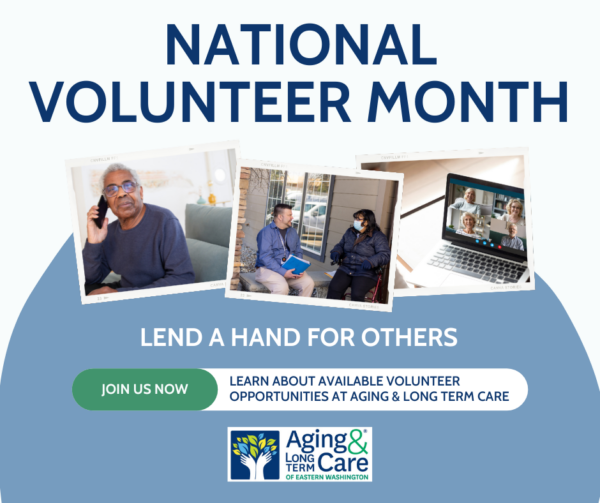June is Alzheimer’s & Brain Awareness Month – With early detection, you have options for living with memory loss
June 1, 2022
As we age, many of us experience some memory loss. Forgetting things once in a while is a normal part of aging. But memory loss that disrupts daily life could be a sign of something more serious, like dementia or other health problems.
To know whether your memory loss is a sign of a bigger issue, it’s important to talk with your family and get checked out by your health care provider. If you are experiencing signs of dementia, early detection gives you more choices for staying healthy and independent.
Dementia is not one specific disease. It’s a broad term for an impaired ability to remember, think or make decisions. For many of us, it’s a frightening word. But identifying your symptoms and potential causes can make a big difference in your life and in your family’s life over time.
When memory loss is detected early, you can:
- Access important resources and programs for people with memory loss and their families.
- Identify and treat reversible causes of memory loss. Rather than being a sign of dementia, some people’s memory loss is caused by factors such as a medication or a health condition that can be treated.
- Make lifestyle changes or get medications that help manage symptoms.
- Get support and guidance from organizations that help people and families living with dementia.
- Find out what’s going on! When we know the cause of our memory loss, we can learn what to expect and how to cope. We can start building a support network.
You can visit doh.wa.gov/memory to learn about some differences between normal aging and signs that your memory loss or changes in thinking may be related to dementia.
But the bottom line is: If you’re having trouble remembering or thinking normally, talk about it now with your family. Make an appointment to visit your health care provider. Together, you can make a plan to get care and support for your family.
The Dementia Action Collaborative, a group of public-private partners committed to preparing Washington state for the increasing number of people living with dementia, has created a variety of tools and resources to help individuals and families facing memory loss, Alzheimer’s disease and other types of dementia. Many of these tools, as well as other local resources, are listed below.
Dementia Road Map: A Guide for Family and Care Partners (PDF: English | Spanish)
Most families report they are not prepared for life with dementia and that they would welcome some type of “Road Map.” This document is designed to be just that. It provides a look at the big picture and the road ahead—and offers direction and tips about what to expect, what decisions lie ahead, and what steps to take. Click here (PDF) for information about how to order print copies.
Dementia Legal Planning Toolkit (PDF)
People with memory concerns, Alzheimer’s or other types of dementia and their loved ones often have questions about planning for their future. The Dementia Legal Planning Toolkit can help you make important financial and health care decisions and give you the legal forms you need.
Dementia Legal Planning Assistance
If you are 60+ and/or have dementia (any age), and need help to complete legal documents – powers of attorney for finances and health care, health care directives – the Dementia Legal Planning project is available to assist. Eligible people will be matched with pro bono attorneys to help navigate the process. Learn more at dementialegalplanning.org.
Dementia Safety Info Kit (PDF)
This is a resource for family members and caregivers to assist in evaluating the home and taking steps to promote safety over the course of dementia. Materials highlight information and tips related to home safety, falls prevention, driving, and more.
Let’s Talk Dementia
This video series features Washingtonians with dementia and their care partners talking about the value of early diagnosis and what they suggest for living well with dementia.
Partnering with Your Healthcare Provider
For people with memory loss and their care partners, this easy-to-navigate online presentation is designed to help consumers understand how to work in partnership with their healthcare providers, organize and communicate around care needs, and reduce the chances of potentially avoidable hospital or emergency room visits.
This website is a centralized resource in Washington state offering help, guidance, information and planning tools which are particularly important if you or a loved one are facing Alzheimer’s or dementia. You are just a click away from information on topics such as: caregiving, legal and financial planning, driving and other safety matters, as well as medical and dental information. Explore this and more by visiting memorylossinfowa.org.


